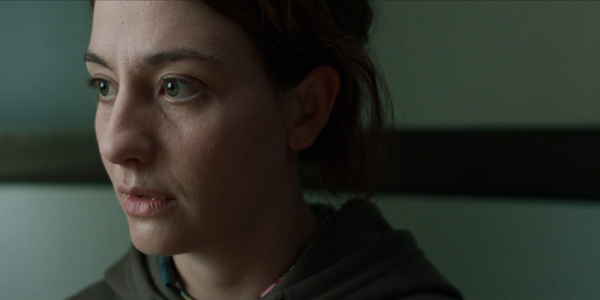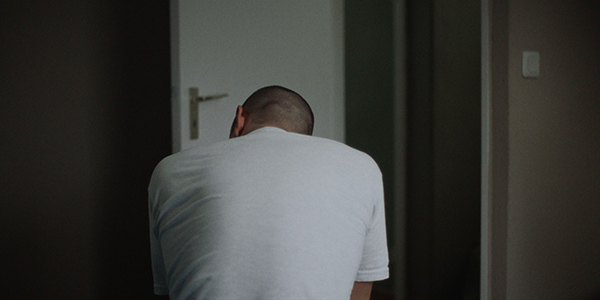Sister, My Sister: Fischer Tests the Moral Fibers of Familial Bonds
 An ethical dilemma curdles in the heart of Sarah Miro Fischer’s directorial debut Schwesterherz (The Good Sister), a title meant to reflect the connotation of loyalty. But to whom, exactly? To those for whom she is a biological sibling or to the implications of her relationship to all women, a nebulous assertion of greater sisterhood through gender? The crux of the situation involves an aimless young woman whose own obliterated romantic relationship has left her somewhat vulnerable emotionally. When confronted with the possibility her brother, with whom she shares an inordinately close relationship, has committed rape, her statement will determine whether or not he’s formally charged with the crime. Much like the title suggests, everything comes down to an interpretation of what’s known and could be potentially minimized.
An ethical dilemma curdles in the heart of Sarah Miro Fischer’s directorial debut Schwesterherz (The Good Sister), a title meant to reflect the connotation of loyalty. But to whom, exactly? To those for whom she is a biological sibling or to the implications of her relationship to all women, a nebulous assertion of greater sisterhood through gender? The crux of the situation involves an aimless young woman whose own obliterated romantic relationship has left her somewhat vulnerable emotionally. When confronted with the possibility her brother, with whom she shares an inordinately close relationship, has committed rape, her statement will determine whether or not he’s formally charged with the crime. Much like the title suggests, everything comes down to an interpretation of what’s known and could be potentially minimized.
Rose (Marie Bloching) has just been kicked out of the residence where she’d been residing with her girlfriend. Crashing with her brother Samuel (Anton Weil) at his small apartment, the siblings fall into their cozy routine with Rose tagging alongside him as she figures out her next moves. One night he brings home a young woman after a night of drinking. From the couch, Rose can hear their engagement in sexual activity, which is mostly uncomfortable from her perspective due to its proximity. Several days later, she receives a police summons to provide a statement regarding the young woman’s allegations of assault. Samuel is shocked by the situation, but when Rose hears the woman’s statement regarding the night in question, she begins to experience doubts about her brother’s culpability.

The moral gray area the narrative traverses tends to exist in a binary divide which feels a bit uncomplicated in its presentation of a situation where there is most certainly a right and wrong decision for its protagonist to make. Once the transgression occurs and we’re led to believe Rose was actually a witness to a sexual assault, The Good Sister falls into a dramatic retreat and, thus, doesn’t really push the boundaries of anyone’s integrity. The physicality shared between the siblings immediately dissipates, and it’s clear Rose’s conflicting sentiments might cause an irreparable rift. But will she do the right thing? Arguably, Fischer and co-writer Agnes Maagaard Peterson never really suffocate the audience in this balance. Rose’s meeting with Elisa (Laura Balzer), the alleged victim, suggests its own boundary crossing which results only in allowing an insinuation that Rose is indeed, a ‘good,’ empathetic person rather than examining her own self-destructive tendencies.

Similarly, Rose’s sexual orientation is also an interesting facet in this situation, and the most interesting elements regard how she might mirror some of her own sexual behaviors after her brother. It’s a pity we couldn’t have seen her demeanor in the relationship she’d just ended with ex-girlfriend Jazz, though they do share one tender, comforting sequence. When Rose initiates a sexual interaction with a fellow male classmate in her art class she takes on a dominating stance whilst using the same language used by her brother to his alleged victim. These are the elements of human behavior which suggest The Good Sister’s psychologically daring moments exist in the explorations of emotions and actions which aren’t usually cinematically explored for those existing in the vicinity of trauma’s aftershocks, highlighting how the rippling consequences of crime can infect a perpetrator’s friends and family. Rose’s confrontation with herself leads to her ultimate decision in the final frames, but it also results in a third act which feels as if it’s lacking the fortitude to really challenge and confront.
Reviewed on February 14th at the 2025 Berlin International Film Festival (75th edition) – Panorama. 96 mins.
★★½/☆☆☆☆☆


